I wrote this article in Japanese and translated it into English using ChatGPT. I also used ChatGPT to create the English article title. I did my best to correct any translation mistakes, but please let me know if you find any errors. By the way, I did not use ChatGPT when writing the Japanese article. The entire article was written from scratch by me, Saikawa Goto.
Introduction
Movies and books covered in this article

I will write an article about this movie/book
Three takeaways from this article
- A boy with autism proved that it is different from intellectual disability.
- He fought against experts who would not let go of their bias.
- His determination to overcome the pain of public appearances if his presence will save someone else.



You will be struck by the courageous and intelligent figure of this young boy, who does not seem like he was only 15 years old at the time of writing this book.
Self-introduction article


Please refer to the self-introduction article above to learn about the person writing this article. Be sure to check out the Kindle book linked below as well.


Published Kindle books(Free on Kindle Unlimited)
“The genius Einstein: An easy-to-understand book about interesting science advances that is not too simple based on his life and discoveries: Theory of Relativity, Cosmology and Quantum Theory”
“Why is “lack of imagination” called “communication skills”?: Japanese-specific”negative” communication”
The quotes in the article were translated using ChatGPT from Japanese books, and are not direct quotes from the foreign language original books, even if they exist.
The Struggle of a Boy Who Completely Changed the Image of “Autistic”
What the Boy Wants to Convey in This Book is that “Autistic is Not Intellectual Disability”
The author, Ido Kedar, is an autistic child. And this book is a work written by the autistic child himself.


Some people may find it hard to believe. Isn’t “autistic” the same as “intellectual disability”? Perhaps many people hold such an image.
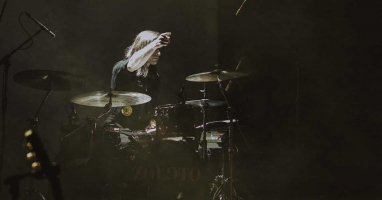

He completely changed that image. And the very that was his main purpose for writing this book.
The message of this book was to correct the misunderstandings about autism in society and to deepen people’s understanding. Autism is a movement disorder, not an intellectual disability. My body and brain are not properly connected, so my brain has difficulty telling my body how to move. As a result, I have become what people see as nonverbal autistic.


I don’t think I have ever directly interacted with someone who has autism. Therefore, I don’t know what their actual state is like. However, I have a general idea from reading non-fiction books and watching documentaries. Many of us may have an image of people with autism involuntarily moving their arms and legs, making incomprehensible noises, and moving around restlessly.
When we see such behavior, we tend to assume that there is a problem with their intelligence. Since direct communication with autistic patients is generally very difficult, this image has been predominant.


Even experts thought that way, not just ordinary people.



As a result, it was a short-sighted judgement, but certainly, if there had been no appeal from autistic individuals themselves, they may not have realized it.
However, the author writes the following:
There may also be autistic individuals with intellectual disabilities, but not as many as you might think. Our failures in intelligence tests are due to “output disabilities.” We cannot properly express what we are thinking on the inside. Autistic individuals who have found an outlet are very few.


It’s not that I can’t understand. I don’t even think so in my head, but my body moves on its own.
This completely overturned the image people had until then.
In Japan, books like “The Reason I Jump: One Boy’s Voice from the Silence of Autism” by Higashida Naoki may be changing the image of autism, but I think this fact is still not well known to many people. It is important to understand this point first.


The author claims “I have intelligence” during a time when understanding of autism was even worse than it is now, and it was an extremely difficult journey.
And it is precisely because of such experiences that the author declares as follow clearly in this book.




If my speaking out can be the trigger to liberate him (*referring to another autistic child), then it’s worth overcoming my fear of appearing in public.
I used to be in despair, but now I have hope. It’s worth giving more autistic people that hope. Otherwise, as a shy person, I wouldn’t have written this book knowing that I would lose my privacy and be unfairly judged by people with prejudices.


At the time of writing this book, the author was 15 years old. The contents written in this book are naturally what he felt and thought before writing it. When you think about it, you might be struck by the intelligence and courage of this young man.
It’s because of the painful experiences that he can empathize with others, right.



Well, I still think it’s better not to have gone through such painful experiences though.
This book is a record of the struggles of such a young boy.


Despair Before being able to Communicate
When Ido was seven years old, he was able to tell his mother by chance that he had intelligence. And from there, his and his mother’s struggle began, but let’s touch on Ido’s perception before he was seven years old.


The following passage in the book made me feel very painful:
I am the only one who knows that inside my head is normal. I can assert that it is a kind of hell.


This situation is terrifying just to imagine. He was capable of having sound thoughts in his head, but he couldn’t convey them properly to the outside world. As a result, people around him perceived him as an “intellectual disability person.”
Since I had no hope, my inner self was like a zombie.
He writes understandably.





It’s a situation that can make us go crazy just by imagining it.
That’s why Ido’s challenge and message have a huge meaning, right?
He explains this situation as being trapped at the bottom of a well. If we were actually trapped at the bottom of a well, our entire body would be confined, but in the case of someone with autism, it’s like only their head is stuck in the well. No matter what’s inside their head, it can’t get out of the well. That state is truly a hellish one.


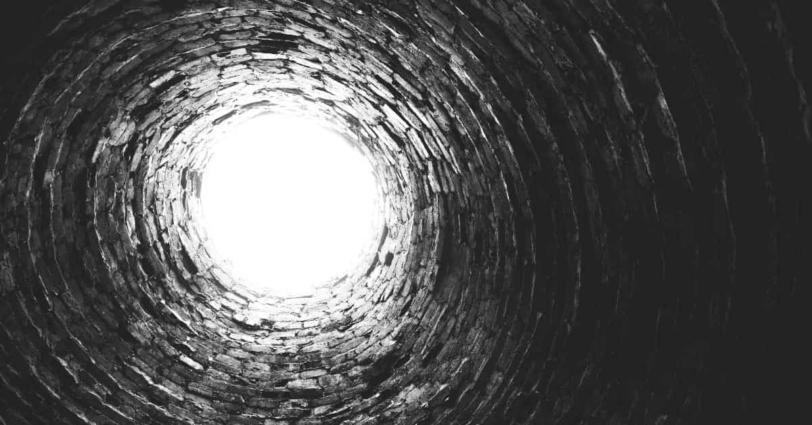

How did he spend those days?
It might be hard to believe that even young children notice things, but I have observed things very carefully and have noticed many things more than anyone else. Since I cannot speak, I have to pay attention to many things. Because if not so, I would go crazy.


By reading this book, you will understand that Ido has an extremely high intelligence. It is supported by his observation and language skills, but it is precisely because he observes, notices, and thinks more than others that he can has this high intelligence. The urgency in the words, “Because if not so, I would go crazy,” reflects the hardship he experienced. To keep his sanity, he had to keep thinking and maintain his head in a healthy state.
Then, by chance, he acquired a “voice” to communicate his thoughts to the outside world, and Ido’s world began to change. However, even after all that, many difficulties awaited him that were not easy to overcome.
That was a dramatic turn of events.



I guess the pioneers have to work hard, after all.


Battle With Experts
The first “voice” that Ido acquired had to rely on his mother. In other words, it was a method in which “Ido’s actions were deciphered by his mother and transmitted to the outside world.”
Unfortunately, because of this method, doubts were cast on the fact that “Ido has intelligence.” It was thought that his mother might be lying. Some people thought that Ido had no will of his own and his mother was just pretending to transmit it.




This mother and child continue to fight against “prejudice”.
That’s terrible.



Well, I think the attitude of “not easily accepting it” is scientific though.
Until then, there were no autistic children like Ido. Even if there were, they were probably not properly scientifically tested, or the communicators (in Ido’s case, his mother) may have given up halfway without fully believing it. However, Ido and his mother continued to fight against the misunderstandings from experts and people involved with autism. And after a long, long struggle, it became known to the world that “Ido has intelligence” and that “autism is not intellectual disability.”


Ido writes about the specialists he has involved with in this book like this:
These people are afraid that the “intellectually delayed autistic” may actually be able to think and understand things without a problem. If that were the case, they would have to change their view of autism.
I have always been afraid of specialists until now. However, I realized that they are also afraid of my existence – I couldn’t help but laugh at this.


This observation is very interesting, and I feel it is a lesson that all people referred to as “experts,” not just those in the autistic community, should learn from.
Ido was diagnosed by experts as having severe autism and clear intellectual disability. From the experts’ perspective, this was a reasonable diagnosis. However, a case that overturns this common sense has emerged. At that time, I feel that it was very important to behave correctly as an “expert.”


Ido heard this story from his scientist father:
I heard this joke from my dad. It was about a physics student. This student was talking about his research, and he said,
“I discarded data that didn’t fit my hypothesis.”
If the data doesn’t fit the hypothesis, the hypothesis should be revised to fit the data, not pretend that the data doesn’t exist.


As someone who also likes science, I can understand this father’s argument very well.
I read in a book before that Galileo was criticized for claiming that the Earth revolves around the Sun, but at the time, a satellite orbiting Jupiter had already been discovered. Astronomers at the time claimed that all stars revolved around the Earth, so the existence of a satellite orbiting Jupiter clearly did not fit that hypothesis.


However, an astronomer of the time claimed that since the satellite was not visible to the naked eye and had no effect on Earth, it could be ignored. This led to the scientist prioritizing their hypothesis that “all stars orbit the Earth” and disregarding the data of the satellite



When I read this story, I couldn’t help but laugh.
It’s a good example of how unscientific science was at that time.
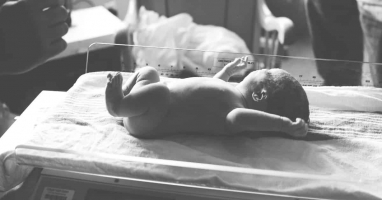

The attitude of the experts who did not acknowledge the intelligence of Ido is similar to the behavior of those who discard data that does not fit their hypothesis. This kind of attitude is not scientific. However, once experts have gained their position and status, they would become afraid of abandoning the knowledge and experience they have accumulated, and would cling to their established way of thinking.
Ido himself has written such a harsh opinion on this matter:
I am not sure why certain people choose to work in special education.
For some, it would be purely to help people.
But I’m sure I’m not the only one who has had a bad experience with experts in special education. For some people, this kind of job is also mostly about ‘showing off their power.’ They continue to dominate the weak who cannot protest, justified by the claim that “it’s necessary”.


Although it may be a strong argument, Ido has the right to say it. Because he has been dominated as “socially vulnerable” for a long time. Here is another impressive sentence:
I stopped worrying about it.
Because I realized it’s not my problem, but his.
He had the opportunity to learn about autism, but chose to remain ignorant.
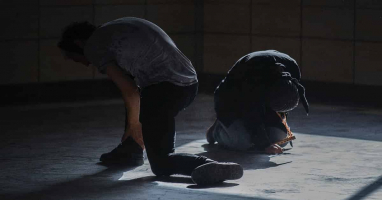




I like the expression “chose to remain ignorant”.
It’s a really smart sarcasm.
But Ido doesn’t just present harsh opinions.


His Determination to “Guiding the Experts”
My efforts are not over yet, but now I can guide the expert teachers who are willing to help me.




He writes that he can guide the experts who have “caused him suffering” in a way that leads to new knowledge. I repeat, he was 15 years old at the time of writing. Every time I read such a description, I can’t help but think of his tough experiences that forced him to mature so much.
Although autism is likely a relatively new area of research compared to infectious diseases or diseases in the field of surgery or internal medicine, nevertheless it should have been studied for a relatively long period of time. Through this, various knowledge would have been accumulated and various hypotheses considered correct.


However, in the history of autism research, the voices of autistic patients themselves have not been reflected. I think Ido’s existence means that a completely different door has been opened in the history of autism research.
And he is clearly aware of that role.
The goals sometimes set by experts are low, and only the minimum goals are set. As a result, there are few things that can be achieved.
I want to break this pattern.


I was impressed by this idea. It’s quite satisfying to hear the boy argue that “experts set their goals too low, and as a result, achieve very little.” You, who understand his experience, can agree with his assertion. It will also make us think about the background of the boy who became a pioneer even though he did not want to and had to be strong.



If I were him, I think I would end up full of myself.
Seriously, that’s what’s so amazing about this boy.


There are many sentences that convey Ido’s strength. For example, Ido, who went to a regular school instead of a special education school, wrote about the school that accepted him in this way:
At least the school could be proud to support disabled children who are trying to lead a normal life.
Yet, they view children with disabilities as a “pain in the neck” and wish they would just leave campus.
It’s unfortunate. They set limits on their own ability to reach out to children.
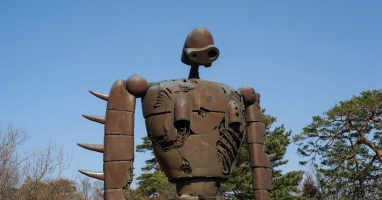

I think this idea is also really good. Especially in Japan, I feel that there is a tendency to feel sorry for causing inconvenience to others, so the person receiving help may feel apologetic. But if we can think like Ido, “I wish people could take pride in helping us,” then both the supporter and the supported can have a good relationship with each other. I was impressed by Ido’s way of thinking.
Conclusion
Ido sees his autism as follows:


I don’t want to admit it, but being autistic has brought good things to me. In the world of silence, I learned to think deeply about things. I learned to observe and understand the emotions of those around me, and I also learned that this illness is not the end of everything. It is just a challenge that I know I can tackle. The secret to happiness is to stop feeling sorry for yourself.


I think it’s a really good way of thinking.



It’s not the time to say things like “life is difficult”.
Well, others are others, I’m just who I am.
When people with disabilities are talked about, there is often an impression that they are presented in a way that says “they are doing their best even though they have a disability, so let’s all do our best” (At least that is my impression in Japan. How about in the West?). However, I don’t like that kind of argument. I think even the disabled people who are being talked about may not feel very good about it.
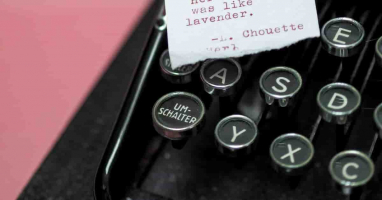

Ido doesn’t show that kind of attitude. Of course, I haven’t actually met him, so I don’t know his usual behavior, but at least I don’t feel that way from this book.
Small miracles pile up to become big gifts. Living while being aware of the gift given to you becomes a weapon against sadness. I want people who are constantly sad to focus on the luck given to them.


By changing the way we perceive our circumstances, our lives can change dramatically. Focusing on the positives is crucial, as we can remain unhappy forever if we do not. Regardless of whether or not he is autistic, this book offers valuable insights in the sense, too, which we can be taught this way of thinking by a “young boy.”


Published Kindle books(Free on Kindle Unlimited)
“The genius Einstein: An easy-to-understand book about interesting science advances that is not too simple based on his life and discoveries: Theory of Relativity, Cosmology and Quantum Theory”
“Why is “lack of imagination” called “communication skills”?: Japanese-specific”negative” communication”







コメント